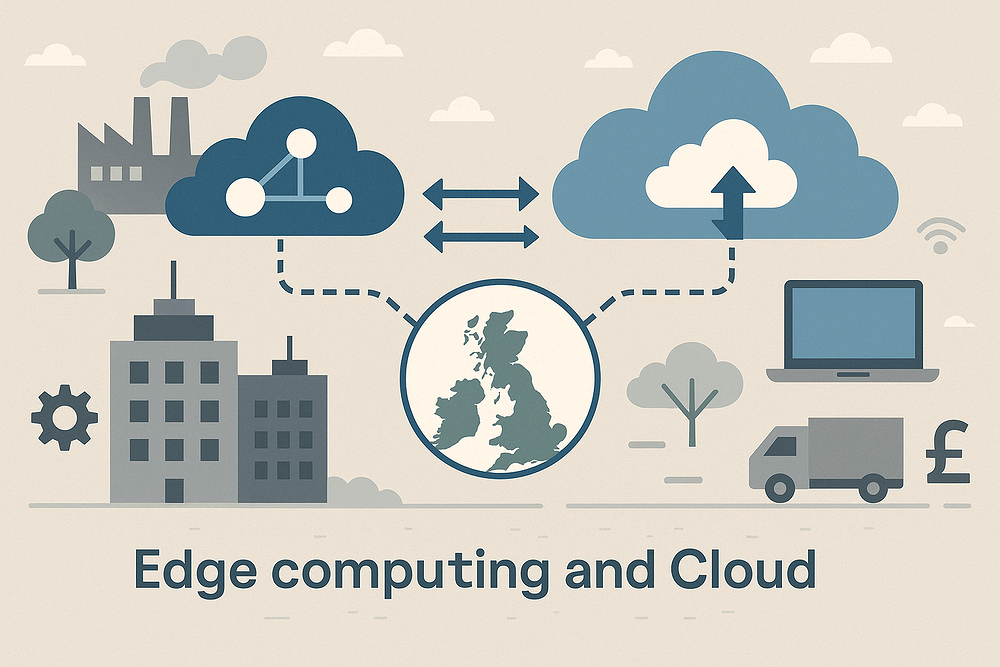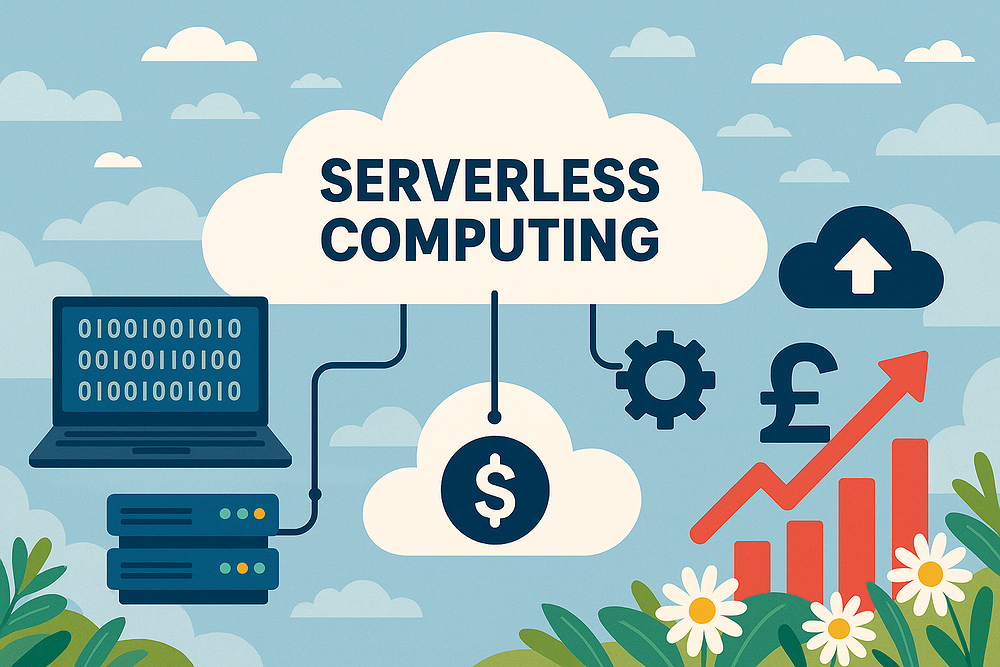GDPR Compliance in the Cloud: What Every UK Business Needs to Know in 2025

In today's digital landscape, cloud computing has become an essential tool for businesses of all sizes. However, with the convenience and efficiency of cloud services comes the responsibility of ensuring that your data handling practices comply with the General Data Protection Regulation (GDPR).
As we move through 2025, GDPR compliance remains a critical concern for UK businesses, even post-Brexit. This guide will help you navigate the complexities of maintaining GDPR compliance while leveraging the power of cloud computing.
Understanding GDPR in a Post-Brexit UK
Despite Britain's exit from the European Union, the UK GDPR (the UK's version of the regulation) continues to apply to all organisations that process the personal data of UK residents. The Data Protection Act 2018, as amended by the Data Protection, Privacy and Electronic Communications (Amendments etc) (EU Exit) Regulations 2020, enshrines these principles in UK law.
The core principles remain unchanged: lawfulness, fairness and transparency; purpose limitation; data minimisation; accuracy; storage limitation; integrity and confidentiality; and accountability. What has evolved are the nuances of implementation, particularly when it comes to cloud computing.
Cloud Computing and Data Protection: The 2025 Landscape
Cloud computing involves storing and accessing data and programmes over the internet rather than on your computer's hard drive. In 2025, most UK businesses use some form of cloud service, whether it's Software as a Service (SaaS), Platform as a Service (PaaS), or Infrastructure as a Service (IaaS).
The current landscape presents several key challenges:
1. International Data Transfers
Post-Brexit, the UK has established its own adequacy framework for international data transfers. The UK has maintained adequacy decisions for EEA countries and has established the UK International Data Transfer Agreement (IDTA) to replace the EU Standard Contractual Clauses.
For cloud services with data centres outside the UK, you need to ensure that either:
- Your cloud provider stores data in countries deemed adequate by the UK government
- Appropriate safeguards are in place, such as the IDTA
- One of the specific derogations applies
2. Shared Responsibility Model
In 2025, there's increased recognition of the shared responsibility model in cloud computing. While cloud providers ensure the security of the cloud infrastructure, businesses remain responsible for:
- Data classification and accountability
- Identity and access management
- Client and endpoint protection
- Application level controls
3. Enhanced Rights of Data Subjects
UK GDPR continues to provide robust rights to individuals, including the right to access, rectification, erasure, and data portability. When using cloud services, businesses must ensure they can fulfil these rights promptly and effectively.
Essential Compliance Measures for UK Businesses
Conduct Regular Data Protection Impact Assessments (DPIAs)
For cloud deployments involving high-risk processing, a DPIA is not just recommended—it's required. In 2025, the Information Commissioner's Office (ICO) has become increasingly vigilant about enforcing this requirement.
A comprehensive DPIA should:
- Describe the nature, scope, context, and purposes of the processing
- Assess necessity, proportionality, and compliance measures
- Identify and assess risks to individuals
- Identify additional measures to mitigate those risks
Choose GDPR-Compliant Cloud Providers
Not all cloud providers offer the same level of compliance support. When selecting a provider, look for:
- UK or adequate country data centre options
- Comprehensive compliance certifications (ISO 27001, SOC 2, etc.)
- Robust data processing agreements that address UK GDPR requirements
- Transparent data handling practices
- Clear mechanisms for exercising data subject rights
- Strong security measures including encryption at rest and in transit
Implement Strong Access Controls
As cloud environments become more complex, access management becomes increasingly critical. Implement:
- Role-based access control
- Multi-factor authentication for all cloud services
- Principle of least privilege
- Regular access reviews
- Comprehensive audit logging
Establish Data Retention Policies
Under GDPR's storage limitation principle, personal data should be kept only for as long as necessary. In cloud environments, this requires:
- Clear retention periods for different data categories
- Automated deletion processes where possible
- Regular data cleanup initiatives
- Documented justification for retention periods
Practical Steps for Implementation
1. Create a Data Map
Before you can ensure compliance, you need to understand your data. Create a comprehensive data map that includes:
- What personal data you collect
- Where it's stored in the cloud
- How it flows between systems
- Who has access to it
- How long it's retained
2. Review Your Cloud Contracts
In 2025, cloud contracts have evolved to address GDPR requirements more thoroughly. Review your agreements to ensure they include:
- Clear roles (controller vs processor)
- Subprocessor management
- Data breach notification procedures
- Data return/deletion provisions
- Audit rights
3. Train Your Staff
Human error remains a leading cause of data breaches. Regular training is essential to ensure that all staff understand:
- Basic GDPR principles
- Cloud security best practices
- Data breach reporting procedures
- Safe data handling in cloud environments
4. Plan for Data Breaches
Despite best efforts, breaches can occur. Have a clear response plan that includes:
- Detection mechanisms
- Assessment procedures
- Containment strategies
- Notification processes (72-hour ICO notification requirement)
- Recovery steps
The Benefits of Getting GDPR Compliance Right
Investing in GDPR compliance isn't just about avoiding penalties (though these can be substantial—up to £17.5 million or 4% of annual global turnover). Proper compliance offers significant business advantages:
- Enhanced customer trust
- Improved data quality and management
- Better security posture
- Competitive advantage
- Smoother business operations
Conclusion
As we navigate 2025, GDPR compliance in cloud computing environments remains a dynamic challenge for UK businesses. The regulatory landscape continues to evolve, with increased focus on international transfers, shared responsibility, and technical safeguards.
By taking a proactive approach to compliance—understanding your obligations, choosing the right partners, implementing appropriate technical measures, and fostering a culture of data protection—your business can confidently embrace the power of cloud computing while respecting the privacy rights of individuals.
Remember, GDPR compliance isn't a one-time exercise but an ongoing commitment to responsible data handling. Regular reviews and updates to your compliance programme are essential as both the technology landscape and regulatory environment continue to evolve.
This article is intended for informational purposes only and does not constitute legal advice. For specific guidance on your organisation's GDPR compliance needs, consult with a qualified legal professional.
Talk to us about your next project
Our team of experts is ready to help bring your ideas to life with solutions tailored to your business.
Get in Touch

